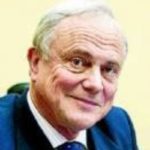Think-tank for economic transition proposing concrete action since 2017
Global cumulative debt has reached unprecedented levels in history: from $ 80 billion to $ 287 trillion in less than 20 years. At the same time, we must respond simultaneously to over twenty major historical issues : demographic (aging population, migration), social (growing inequality, exclusion and revolt: social unrest), economic (upcoming systemic problems, disruption of job market, new skills and education, digitalization), political (populism, loss of trust in leaders), environmental (climate change,…).
We are in a vulnerable situation, a pivotal moment, potentially at the dawn of a crisis encompassing existing systems. These historical challenges can not be solved by some isolated reforms. The magnitude of challenges requires the advent of multiple solutions, a new paradigm, and growth in awareness of citizens, businesses, and governments. This historic moment requires the involvement of the entire social body. A historical opportunity for economic transition and systemic changes. Club of Brussels proposes ideas and solutions in order to rethink the fundamentals of our economy.
Brussels is the ideal location to develop and implement this new systemic, regenerative and holistic economy that. Because of its geographic position, Brussels plays an important role and can be a pioneer when it comes to new ways of thinking and acting. This is because as the European capital it benefits from a high concentration of experts, key institutions and embassies.
Thousands of studies have been made on economic transition, but they only take on a partial perspective. What Club of Brussels does differently is to integrate everything as a whole.
We are projecting an economic vision of 5 to 10 years, by analysing job loss and creation, and facilitating the emergence of new, pragmatic economic spaces. We’re writing roadbooks to help governments in expected regenerative transition. Social, digital, sharing, collaborative, green and circular economies are all major models in the next chapter of economic thought.
Executive Training
A 6-weeks program followed by a formal evaluation (Business Case study)
Twice a week on Mondays and Wednesdays from 17:30 to 20:30, composed of live blended classes (on-site and online) with theory, business case application, Q&A and coaching.
In short
- Access to an online learning environment such as readings, templates, best practice solutions, PPT’s and videos.
- Familiarize you with a new approach to value creation.
- Learn to manage change and complexity.
More Information
We have to face over 25 historical challenges (ageing, environment, resources, recession, (re)education and an ageing pool of talents, technological developments, climate change, political instability, social unrest, …). Most of these issues can not be dealt with with a singular focus, but require a “complexity” approach, targeting the overall underlying and surrounding broader ecosystem. As most of these challenges will converge before 2030, a focus on short-term emergencies will falter. Old methods and perceptions no longer provide the answers. Leaders have to get prepared for these multiple crisis management situations. In short, this training aims to provide you with the tools to face the most challenging times ahead of us, and to become a true “transition leader”.
This executive training program is a shared initiative between Vesalius College – Brussels School of Governance and Club of Brussels. It consists of an experiential action-based training for leaders and experts to deal with the multiple historical challenges our current economy faces. Depletion and mismanagement of natural resources, climate change, talents, and a global pandemic are only a few examples that clearly demonstrate that our short-sighted economy is increasingly failing. As such, this training will support you in developing a different and encompassing strategic intelligence that will allow you to deal with all the complexities that a new approach to management requires.
3 950 € + 21% VAT
Capacity is limited to 20 participants. Registration will be closed when the maximal capacity is reached.
Early registration 30 days prior offers a 15% reduction on the fees.
Admission for this course requires to hold a master degree or a bachelor degree (at least 3 years’ experience) but every participant has the possibility to team up with a junior member during the training program.
This program is ideal for managers, entrepreneurs, leaders, political leaders and interim managers. It is run by experts and pioneering entrepreneurs, and allows the participants to project themselves in real-life situations. Through the focus on the Theory-guided, Practice-embedded and Experiential Learning (TPEL) pedagogy embedded in all aspects of this certificate programme, participants will further be able to apply the theory and practice to a real-life case of their own choice. This programme will familiarize you with a new approach to value creation which will drastically de-risk the next generation of business models, in a world where the old models have only proven to fail to address even a single challenge we currently face.
What people say
Informational videos
Our partners

















